Establishing a Durable Medical Equipment (DME) business offers significant opportunities in today’s rapidly changing healthcare industry. This thorough DME business startup guide will assist you in navigating the essential components required to launch a successful business in this growing sector.
Legal Requirements and Compliance
Proper license and compliance are the cornerstone of any prosperous DME business. Begin by obtaining the required federal and state licenses, such as your National Provider Identifier (NPI) and Medicare supplier number. Maintain thorough records of all certifications and make sure that HIPAA standards are followed. Create compliant rules and processes in collaboration with healthcare attorneys. Understanding accreditation requirements is crucial – organizations like The Joint Commission or Accreditation Commission for Health Care (ACHC) provide the necessary credentials. This essential phase in your DME business startup guide will safeguard your company and build trust with medical professionals.
Product Selection and Inventory Management
Choosing products strategically is essential to success. Find equipment and supplies that are in great demand by conducting market research. When curating your inventory, take into account elements such as reimbursement rates, competition, and local demographics. Build relationships with trustworthy distributors and manufacturers to guarantee steady supply chains. Put in place inventory management systems that monitor equipment lifecycles, maintenance plans, and stock levels. Moreover, prioritize goods with high-profit margins while upholding patient-centered quality requirements.
Insurance and Billing Operations
Collaborate with major insurance companies and learn about their reimbursement policies. Purchase specialized DME billing software to cut down on errors and expedite the claims processing process. To increase reimbursement rates, teach employees the correct coding and documentation techniques. Clearly define the procedures for managing appeals and declined claims. Consider hiring experienced billing specialists or outsourcing to a dedicated DME billing service initially.
Marketing and Referral Network Development
Develop trusting connections with medical professionals who may recommend you to patients. Create a professional marketing plan aimed at nursing homes, rehabilitation facilities, doctor’s offices, and hospitals. Create instructional resources regarding your products and services. Build a professional website and use social media to establish an online presence. To keep track of referral sources and stay in touch with healthcare partners, put in place a customer relationship management (CRM) system.
Operational Infrastructure and Customer Service
Establish effective operating protocols for the delivery, setup, and maintenance of equipment. Invest in dependable scheduling and transportation networks. Teach employees how to use, clean, and maintain equipment properly. Establish a customer service system that is open around the clock to provide emergency support. Establish precise procedures for the replacement, maintenance, and return of equipment. To get remote setup help and troubleshooting, think about putting telehealth solutions into place. To guarantee continuous service delivery and client satisfaction, implement quality control procedures.
Bottom Line
Although starting a DME business startup involves careful planning and attention to detail, it can be a profitable endeavor if done correctly. Utilize this checklist as a guide, but be adaptable enough to adjust to shifting market dynamics and legal requirements. Remember that effective operations, first-rate customer service, and stringent compliance standards are the keys to success in the DME industry.
